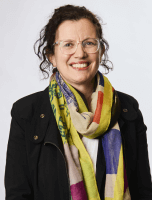When goods are counterfeited, rights holders lose revenue, market share, and can face significant damage to the brand’s reputation. Counterfeit products are often poor quality and can even be dangerous, so consumers may be putting themselves at risk without even realising it.
The difficulties in evaluating damage
The scale of counterfeiting – like any other type of illicit trafficking – is difficult to quantify. One of the possible ways to assess the scale of the problem is to look at seizures of counterfeit goods by authorities.
During financial year of 2012/2013, Australian Customs and Border Protection Authorities made 1,694 seizures of counterfeit goods, involving 296,186 items with an estimated retail value of more than AU$17 million. Some of the items seized included washing powder and beer bottles. Due to the fact that not all counterfeit goods are intercepted by Customs, these figures only show part of this global traffic.
A global counterfeit network
Counterfeiters no longer work in isolation – they have become ‘international entrepreneurs’ with global connections to highly sophisticated networks. For example, counterfeiters will often work together to take advantage of major concerts or sporting events to distribute imitation products in advance, largely at the expense of the official sponsors. In recent international sporting events, clothing copying the official event logo was sold online before their official release by sponsors, whereas previously this process would have taken several months.
The internet, particularly online auctions, has enabled counterfeiters to find an almost unlimited source of customers. Selling products online is much more difficult to detect by the authorities than in a physical market place.
Experts have suggested that many of the techniques used by drug traffickers such as false bottoms on luggage are also being used by counterfeiters attempting to illegally import fake goods into Australia. The high profit margins of counterfeit goods also encourage criminals to use this activity as a way of laundering money.
Breadth of counterfeiting
Counterfeiting, once primarily focused on luxury goods and designer brands, has invaded many other sectors, including pharmaceuticals.
Between 13 and 20 May 2014, the Australian Customs and Border Protection Services (ACBPS) and the Therapeutic Goods Administration (TGA) contributed to an international week of action to stop the trade of counterfeit and illegal medicines purchased online.
During Operation Pangea VII, coordinated by INTERPOL, law enforcement, Customs, and regulatory authorities from 111 countries collaborated to identify the makers and distributors of illegal drug products and medical devices. According to Interpol1, the operation led to 237 arrests worldwide and the seizure of nearly USD$36 million worth of potentially dangerous medicines.
In Australia, Customs officers seized 51 packages containing over 21,000 units of the counterfeit or illegal medicines at the Sydney and Melbourne International Mail Centres after they had been posted from a range of overseas countries2.
Anti-counterfeiting strategies
Working with Customs is essential if a company suspects that infringing goods are being imported into Australia. It is a highly effective means of enforcing intellectual property rights and preventing the release into the Australian market.
We have extensive experience in assisting rights holders to obtain a Customs Notice of Objection and following up seizure made by Customs once a Notice is in place. We can also assist in conducting investigations of markets or on the internet, or more generally in setting up effective anti-counterfeiting strategies.
Should any of these issues relate to your products, please get in contact to find out how we can help you.
References
1 http://www.interpol.int/News-and-media/ News/2014/N2014-089
2 http://newsroom.customs.gov.au/releases/acbps-and-tga-contribute-to-worldwide-crackdown-on-counterfeit-and-illegal-medicines

